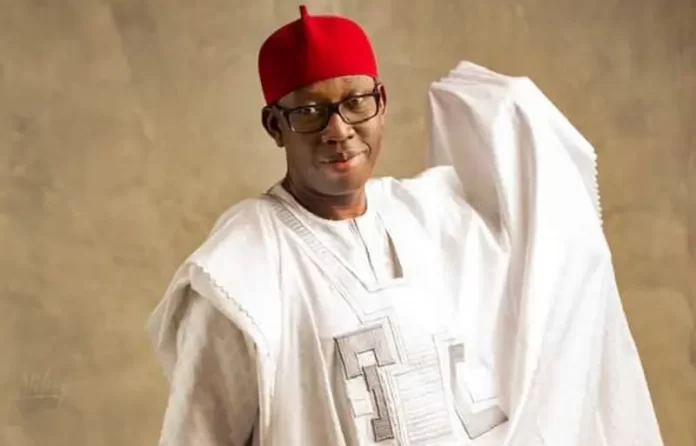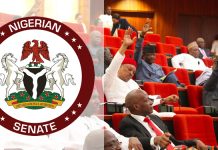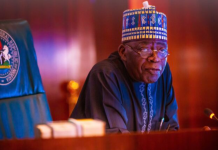It is striking that in the past eight years, development has shifted away from Warri, the capital of Delta State and the Niger Delta’s oil hub, which serves as a melting pot primarily for the Ijaw, Urhobo, Itsekiri, and other ethnic nationalities.
An oil city, which has expanded to include the neighboring city of Effurun, should not have rickety roads, slum-like homes, an unstable electricity supply, widespread unemployment, poverty, and filthy living conditions.
While former Governor James Ibori (1999–2007) handled more of a crisis in the oil city under the new political regime, his successor, Emmanuel Uduaghan (2007–2015), showed only modest interest in roads and beautification; however, the efforts, with the exception of those on the Effurun flyover, petered out after a while.
A flood of complaints
When he finally spoke out about the state of Warri last year, South-South leader Chief Edwin Clark of Kiagbodo, Burutu local government area of the state, said that the oil city had been abandoned without development, just as the leaders had feared before the state’s creation in 1991.
He added that the current situation in Warri vindicates the fears that some leaders had back then that they would demote Warri if it did not become the seat of government for the then-new Delta State.
Recent comments from him included, “It may be too late, but finally, I wish to advise you (Okowa) not to reduce Warri to a deserted village, as Chief Onanefe Ibori did to Sapele,” in which he criticized outgoing Governor Ifeanyi Okowa for allegedly under-developing Warri. He relocated the majority of the offices from Sapele to his hometown of Oghara.
The senior state leader had spoken with this reporter prior to his outburst to express his worries to Okowa about the poor state of the roads in Warri.
Other politicians speak about the infrastructure crisis in Warri in low voices, aside from the All Progressives Congress, APC, candidate for governor on March 18 in the state, Senator Ovie Omo-Agege, who did so for obvious reasons.
While this was going on, Warri-area journalists, particularly those from the NUJ’s Correspondents Chapel, issued a press release warning of the appalling state of the roads in the oil city and its surroundings.
On social media, some residents, bloggers, and journalists also highlighted Warri’s run-down appearance with pictures and critical comments from locals.
Go-between function of a reporter
This reporter informed Okowa of Clark’s complaint, and in keeping with how he had responded to complaints about Warri roads in recent years, he maintained that the reason roads in Warri never held up was because they were constructed on a flawed foundation, but he would not make that error.
Before building roads, the governor insisted on building the proper foundation. He claimed that a few years after they were built, floods would typically wash away the roads, so the best course of action was to identify the issue and address it.
In order to prevent floods in Warri and Effurun, he claimed that’s why his government started a more than N20 billion stormwater drainage project.
I informed the South-South leader of the governor’s justification. Like many others, he was skeptical of the governor’s claims and questioned why Warri should be abandoned for the entire eight years Okowa was in office.
However, given the most recent developments in the oil city and the fact that the water storm project is almost finished, some people can now understand why the governor insisted on addressing flooding before building roads.
What people inquired about the roads in Warri
At the opening of the widened Warri-Sapele Road, which runs from the Effurun Roundabout to Enerhen Junction to Enerhen Junction, last week, Okowa claimed that his administration had established a strong foundation for the long-term growth of the cities’ infrastructures.
“When people questioned why we hadn’t built more roads in Warri, I replied that I like to plan for today and tomorrow. It was the same when I arrived in Asaba, the governor claimed.
“We discovered that stormwater was destroying roads. The stormwater drainage took some time to design and begin.
“Many governments won’t invest in such projects because most of the drains will be underground and hidden from view in the end.
“Therefore, when people return two or three years later, they have no memories. However, despite our efforts, you have actually made a significant contribution to the neighborhood’s stabilization.
“When I first moved to Warri, we had to study for a full 18 months before the first set of projects—which are the major projects—were finally awarded.
There are two additional projects that could be categorized as small or minor projects. We are investing a significant amount—more than N20 billion—in those drains.
“Nobody should applaud me,”
“Everywhere I go, people will cheer and applaud for me if I spend N20 billion repairing the roads in Warri. But all of those roads will be gone in a year. Therefore, I’d rather focus on laying the groundwork and let other governments construct on top of it.
This is because not many governors will take office and decide to undertake a project that will prevent people from praising them; however, for me, it is not about the praise I receive because all praise belongs to God. Okowa said he was leaving Delta in the hands of someone who could continue to build sustainable infrastructure throughout the state.
The governor stated, “Yes, I am stepping down as governor, but it is my hope that the next governor, who I will refer to as a “home boy” in Uwvie, will accomplish much more in this local government than I did.”
“I’m happy to launch this particular project today. The Storm Water drainage project in Warri, however, stands out for me among all the projects I am working on.
“Since the stormwater drainage project is not yet complete, we have not yet officially launched it. But this year, the government will finish it.
“We have set the stage for Oborevori.”
It’s all about laying the groundwork for future development. I am grateful to God that we laid that foundation so that future government road construction will result in durable roads.
“We have established that base, and we are confident that Governor Sheriff Oborevwori will expand upon it.”
The country’s oil production had increased thanks to the development of the oil-producing communities, he noted, and his administration had demonstrated a strong commitment to the project.
The governor remarked, “We are glad for it because the peace itself has allowed us to have greater oil production from Delta State.”
“As of right now and for the previous three years, we have held the top spot in the nation for crude oil production, which is good for us.
“The project got off the ground under the previous governor’s leadership. I won’t go into details, but we had to pay Setraco, the contractor, some debts owed while continuing to encourage them to work as we settled the debts for certificates earned.
I must admit that not many contractors are able to work as hard as they have.
Join Television Nigerian Whatsapp Now
Join Television Nigerian Facebook Now
Join Television Nigerian Twitter Now
Join Television Nigerian YouTUbe Now





